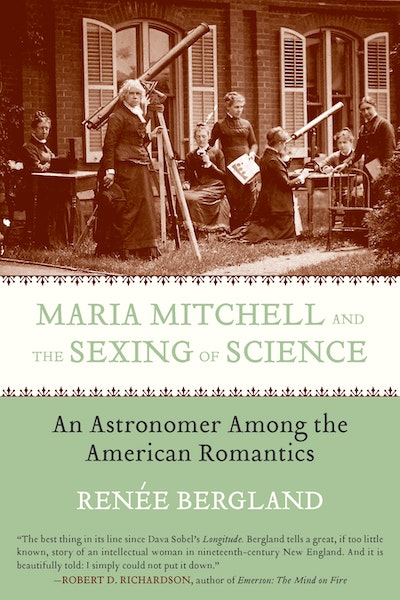- Published: 1 July 2018
- ISBN: 9780807021439
- Imprint: Beacon Press
- Format: Paperback
- Pages: 320
- RRP: $45.00
Maria Mitchell and the Sexing of Science
An Astronomer among the American Romantics
- Published: 1 July 2018
- ISBN: 9780807021439
- Imprint: Beacon Press
- Format: Paperback
- Pages: 320
- RRP: $45.00
The best thing in its line since Dava Sobel's Longitude. Bergland tells a great, if too little known, story of an intellectual woman in nineteenth-century New England. And it is beautifully told: I simply could not put it down. Anyone who cares about women's education in America should read this compelling and indispensable book. —Robert D. Richardson, author of Henry Thoreau: A Life of the Mind, Emerson: The Mind on Fire, and William James: In the Maelstrom of American Modernism "Renée Bergland recounts the story of Maria Mitchell's life and work in glorious and careful detail. One feels and hears the sounds of Mitchell's native Nantucket and her adopted Vassar, and comes to understand how one of the 'gentler sex' advanced astronomy in her day."—Londa Schiebinger, author of Has Feminism Changed Science?
